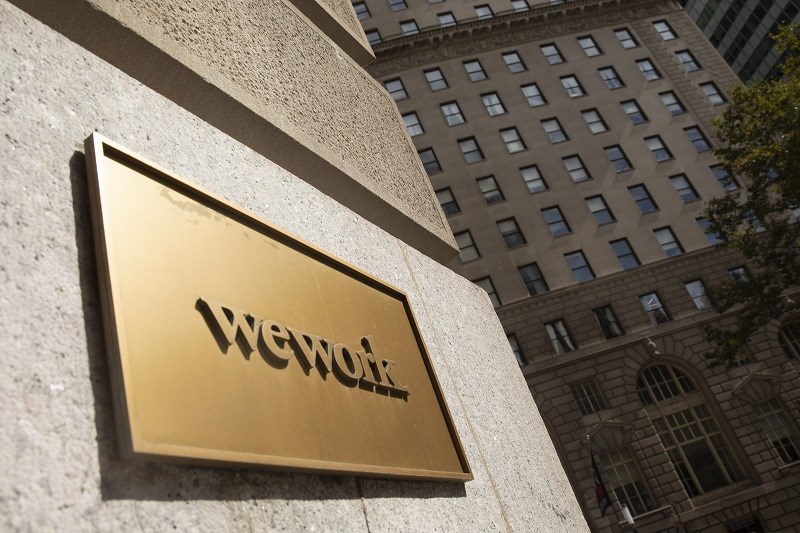
Taking listed firms private is all the rage this year. Supermarket Morrisons (MRW) is at the centre of a takeover battle between private equity firms, while the owners of Daily Mail publisher DMGT are looking to take the company private for the first time in 90 years. At Morningstar.co.uk, we have covered a range of IPOs in recent months, from Deliveroo to Coinbase and Robinhood, so it makes sense to look at why and when companies go in the opposite direction and leave the stock market through buyout, merger or acquisition.
The Pros of Companies Going Private
- The most obvious benefit for shareholders is that buyers usually offer a price above the company’s existing share price. According to data from AJ Bell, the average premium paid in 2020 and 2021 for UK stocks is 37%, which is a decent return for existing shareholders.
- Businesses often find it easier to restructure away from the demands of being a stock market listed company. Tough decisions on jobs or strategy don’t have to be put to millions of shareholders and the company doesn’t need to report results every quarter (or pay out dividends).
- A struggling or failing company can be put up on the blocks and problems fixed –which usually involves an injection of cash – before being sold back to investors. As our explainer on private equity shows, firms that take companies off the market are looking for a return just like any investor.
- Being taken private is often not a one-way street, so retail investors can often get the chance to own a company again, often as part of a new and bigger group.
The Cons of Going Private
- As a retail investor you are missing out on the company’s future growth
- … And buyouts mean fewer companies for investors to choose from, which means less choice for funds, pension schemes and indices. This also matters for income investors who rely on listed companies to pay dividends.
- From an ESG point of view, being public also brings a level of accountability that can improve a company’s relationship with workers and the wider community (eg. Uber has had to upgrade drivers’ terms and conditions as a listed company)
- It’s easy to get real-time information on what listed companies are worth and what you’d get if you sold them today. But valuing private companies is much harder because there isn’t enough information on sales, profits and how products are performing.
Let’s look at some examples of buyouts:
As the chart shows, Morrisons’ shares have been languishing for years but are up 50% since the start of the year. The takeover battle may not be over yet, so investors could get even more for their shares when the deal goes through. This might prove an attractive exit point for some who wanted to sell anyway. After all, before the private equity interest, Morrisons’ shares were at roughly the same level they were five years ago.
Sophie Lund-Yates, an equity analyst at Hargreaves Lansdown, thinks the Morrisons’ deal could be a positive for the business: “A company doesn’t have to be in terminal decline to be taken over. A lot of the time a relative underdog in a sector, like Morrisons, might be attractive. Not only because it will cost less, but because its size means there’s room for more growth, compared to the industry titans.” She adds that Morrisons’ property portfolio is a very attractive proposition, and thinks that the supermarket chain can grow its online business from a low base.
Buyouts can be controversial and lead to resentment that a country’s best known companies are being “snapped up” by foreign entities. Chocolate-maker Cadbury was bought out by US giant Kraft in 2010 and former stock market darling ARM Holdings was picked up by Japan’s SoftBank in 2016. Takeovers can also have security implications too: UK defence and aerospace firm Cobham, which was bought by US private equity firm Advent in 2019, is now looking to buy industry rival Ultra Electronics (ULE). The UK Government said this week (wc July 27) that it may intervene in the deal.
Boots and Burgers
One such trusted UK company that has entered foreign ownership is Boots. Branches of the chemist have been part the British high street since the nineteenth century but in 2007 Alliance Boots became the first FTSE 100 company to be bought by a private equity firm. The deal was worth £11 billion following a bidding war between KKR and Terra Firma. Boots is now part of Walgreen Boots Alliance (WBA), a $40 billion company. So even after going private in 2007, at least UK shareholders can own a small part of the company by buying the US shares (or S&P 500 trackers).
US fast food giant Burger King has also changed hands a number of times in recent years and moved between public and private status. Burger King was bought for $1.5 billion in 2002 by a private equity consortium, then floated again in 2006. Four years later it was taken private again by Brazil’s 3G Capital for $3.26 billion, which is still one of the biggest buyouts of all time. Burger King has been expanding in emerging markets (it has more outlets in Mexico than McDonald’s (MCD)) plus the growth of food delivery apps during lockdown has boosted sales. While the wellness trend puts fast food off the menu for some consumers, offering vegan menu choices can be a lucrative option for companies like Burger King. The company also has 12 million members of its loyalty programme, and boasted 18,625 outlets worldwide in 2020, a rise of around 10% since 2018.
Who's Next?
The UK stock market has recovered since last year’s slump, but is still unloved despite the flurry of M&A and private equity activity. Some firms have started to see this as an opportunity, says Roland Arnold, manager of the Silver-rated BlackRock UK Special Situations and UK Smaller Companies funds. UK takeover activity, especially that driven by private equity backers, is a sign that some investors are seeing the potential for UK stocks. “Those with long-term investment horizons are recognising the value that exists,” he says. The range of companies targeted by private equity or rival firms is wide indeed, from supermarkets to healthcare, infrastructure and even computer games.
Morningstar analysts think it’s no coincidence that a UK supermarket has been in the sights of a buyer. Ioannis Pontikis says that UK listed grocers are attractive for number of reasons: visible cash flow, their ability to borrow, a strong asset base of physical and the potential for efficiencies under new ownership. He thinks that Sainsbury’s (SBRY) in particular could be the next target for private equity, and to a lesser extent Tesco (TSCO).




























